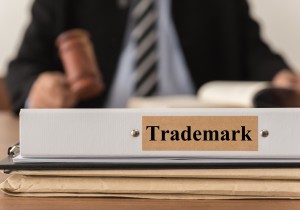 Sometimes reality takes more twists than fiction, and trademarking trending names and catchphrases prove no exception to that maxim. As you may recall, I have previously written about the dangers of pursuing the trademarking of trending names and catchphrases. Presenting the problem in the context of President Trump’s strange (and now infamous) “covfefe” tweet on Twitter, I stressed some of the biggest reasons to avoid seeking to trademark such trending terms and catchphrases. As luck would have it (if you can call it that), the term “covfefe” truly is the catchphrase that just keeps on giving, at least as far as registering trademarks is concerned.
Sometimes reality takes more twists than fiction, and trademarking trending names and catchphrases prove no exception to that maxim. As you may recall, I have previously written about the dangers of pursuing the trademarking of trending names and catchphrases. Presenting the problem in the context of President Trump’s strange (and now infamous) “covfefe” tweet on Twitter, I stressed some of the biggest reasons to avoid seeking to trademark such trending terms and catchphrases. As luck would have it (if you can call it that), the term “covfefe” truly is the catchphrase that just keeps on giving, at least as far as registering trademarks is concerned.
Looking to capitalize on trending terms and catchphrases, at the time of my initial article there were a total of 32 trademark applications seeking federal trademark registration for the term “covfefe” for everything from coffee to fragrances to clothing. As of the time of this writing, a total of 40 trademark application records at the USPTO were found seeking registration of the term “covfefe.” From what I can gather at this time, none — I repeat, none — of those applications have proceeded to registration and probably will not do so. Simply put, the USPTO has pushed back, refusing to permit registration because it takes the position that the term does not function as a trademark. The reason they have received pushback from the USPTO is quite interesting, however, and yet another reason to avoid trying to capitalize on trending terms and catchphrases in your (or your client’s) business.
Trademarks are defined under the Lanham Act as follows (15 U.S.C. § 1127):

How LexisNexis State Net Uses Gen AI To Tame Gov’t Data
Its new features transform how you can track and analyze the more than 200,000 bills, regulations, and other measures set to be introduced this year.
[A]ny word, name, symbol, or device, or any combination thereof… used by a person, or… which a person has a bona fide intention to use in commerce to identify and distinguish his or her goods, including a unique product, from those manufactured or sold by others and to indicate the source of the goods, even if that source is unknown.
This definition is pretty straightforward — trademarks distinguish the owner’s goods and services from those of another through their use, yet also act as a source identifier of the goods and services. These elements are essential not only to obtain federal registration status, but to maintain, protect, and police such rights.
The problem with “covfefe” stems from this definition — as a trending phrase, it does not serve as a source identifier. From the USPTO’s perspective, however, it cannot serve as a trademark. Reviewing some Office Action refusals to federal trademark applications for “covfefe” prove instructive regarding this position (such as the one here), finding that the term “covfefe” refers to a term originally written by the President of the United States in a tweet,” the term then proliferated on the internet in news articles, internet reporting, and social media postings (such as here and here), and then became frequently used by third parties as a reference to the President of the United States. As such, the USPTO found that “the wording has been used in reference to a variety of goods and services by a wide variety of third parties,” such as for t-shirts, coffee mugs, and even beer (to name a few). In the words of the USPTO, “[b]ecause consumers are accustomed to seeing this slogan or term commonly used in everyday speech by many different sources, the public will not perceive the term or slogan as a trademark or service mark that identifies the source of applicant’s goods, but rather only as conveying an informational message.” (emphasis added).
Although this position may come as no surprise, the next point is definitely surprising for trademark practitioners — the USPTO has also taken the position that the term cannot acquire distinctiveness. What this means is that the USPTO feel that the term “covfefe” simply cannot come to be associated with a company’s goods and services, ever. Quite frankly, this is surprising because descriptive terms usually can acquire distinctiveness over time unless they are so descriptive as to be generic. Further, fanciful and arbitrary terms (i.e., those with no meaning in the English language) can actually be inherently distinctive (and usually become quite strong trademarks as a result because they become strongly associated with the registrant using the trademark in commerce). In the present case, the USPTO claims that by virtue of the viral propagation of the term and its association with President Trump, the term cannot ever be a source identifier for a company’s goods and services. In reviewing other refusals to federal trademark applications for “covfefe,” it seems that the USPTO understands that the word has no real meaning (which normally makes a mark fanciful and arbitrary, yet in this case it is not inherently distinctive) and as such it cannot be generic, but because of its viral propagation, it cannot serve as a trademark. Hmmm.

7 Key Trends In Law Firm Rate Negotiations
And how to navigate them in 2026.
Just like the confusion over “covfefe,” I won’t pretend to ignore confusion over the USPTO’s position; however, this refusal has been consistent across a number of federal trademark applications for “covfefe.” With this information in mind, it is yet another reason to avoid using (let alone attempting to register) trending terms and catchphrases for the goods and/or services of your company (or client), as obtaining federal trademark protection is a non-starter, state trademark protection is likewise questionable, and attempting to police the common law use of the trademark will be next to impossible. To use common vernacular, such terms and catchphrases are real dogs when it comes to trademark rights. As a result, when it comes to trending terms and catchphrases as trademarks, sometimes you just need to let sleeping dogs lie.
 Tom Kulik is an Intellectual Property & Information Technology Partner at the Dallas-based law firm of Scheef & Stone, LLP. In private practice for over 20 years, Tom is a sought-after technology lawyer who uses his industry experience as a former computer systems engineer to creatively counsel and help his clients navigate the complexities of law and technology in their business. News outlets reach out to Tom for his insight, and he has been quoted by national media organizations. Get in touch with Tom on Twitter (@LegalIntangibls) or Facebook (www.facebook.com/technologylawyer), or contact him directly at [email protected].
Tom Kulik is an Intellectual Property & Information Technology Partner at the Dallas-based law firm of Scheef & Stone, LLP. In private practice for over 20 years, Tom is a sought-after technology lawyer who uses his industry experience as a former computer systems engineer to creatively counsel and help his clients navigate the complexities of law and technology in their business. News outlets reach out to Tom for his insight, and he has been quoted by national media organizations. Get in touch with Tom on Twitter (@LegalIntangibls) or Facebook (www.facebook.com/technologylawyer), or contact him directly at [email protected].